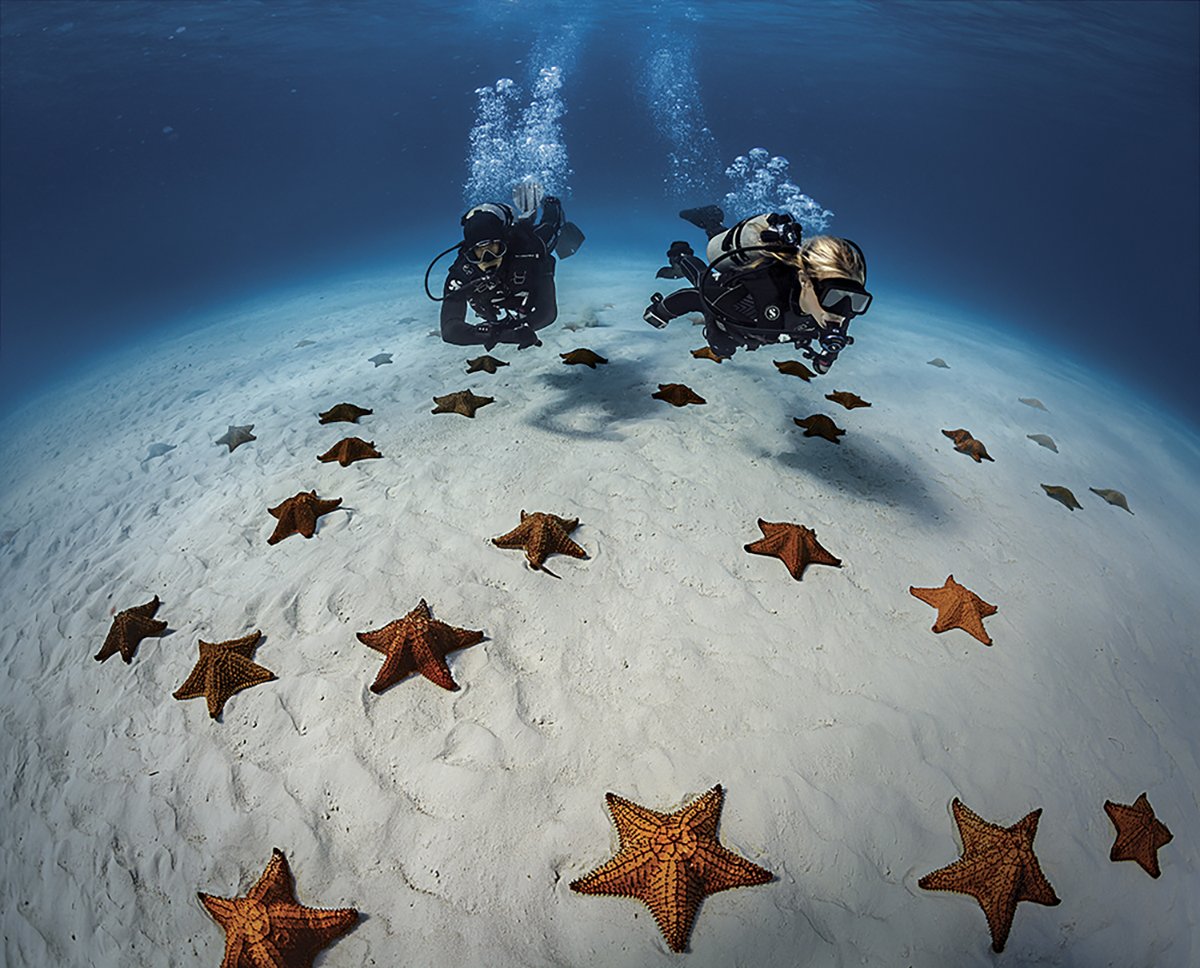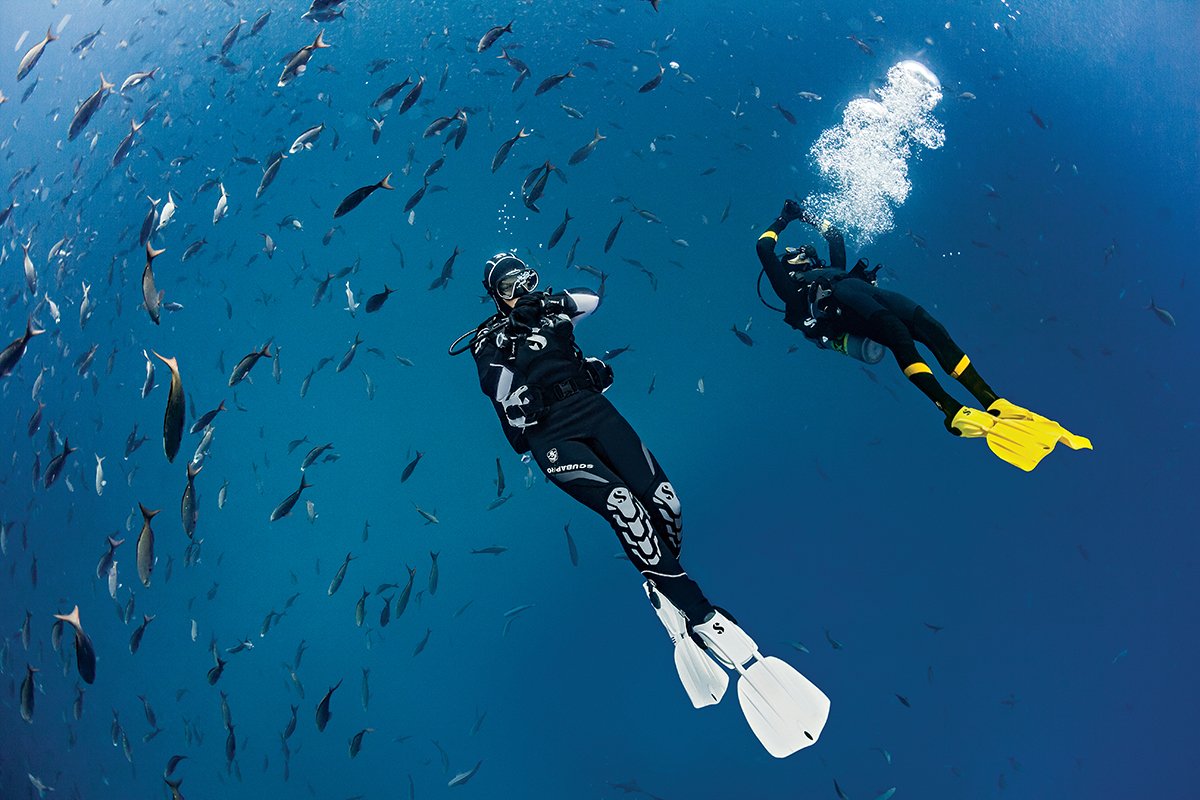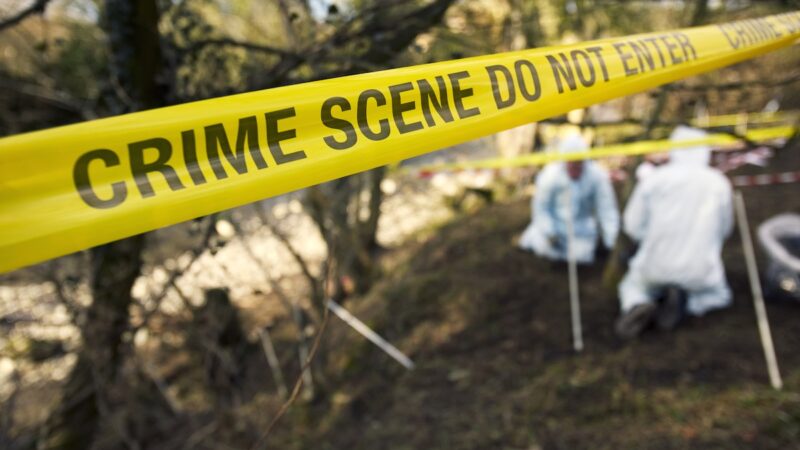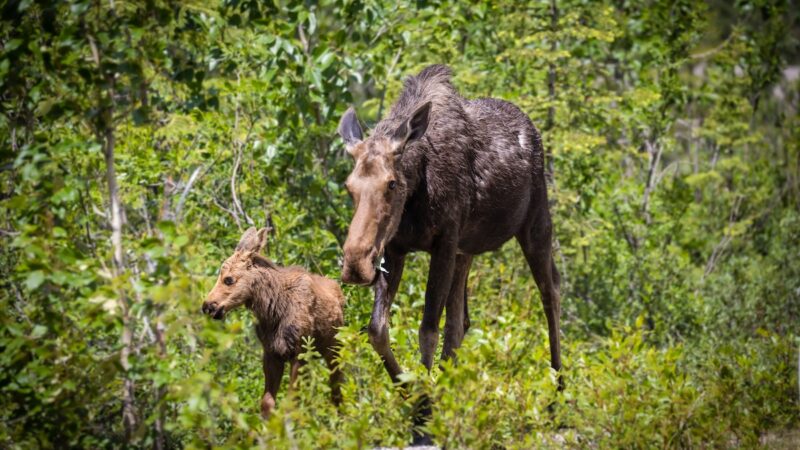How To Get Scuba Certified: A Step-by-Step Guide
Scuba diving is one of those “one day” activities that many people aspire to try. And although it’s often referred to as the closest you can get to feeling like an astronaut on Earth, scuba diving doesn’t have to be out of your reach. And while it’s true that most scuba diving expeditions require a complete certification before diving, the process isn’t anywhere near as exhausting as training for NASA.
So let’s demystify things, and break down the certification process, step-by-step. To help us out we spoke with Julie Anderson, PADI’s global brand director- and a certified diver with 20 years of experience, to better understand the steps to get a scuba certification.
Steps to getting scuba certified
Girls that Scuba recommends that you get your first taste of diving while on vacation. Many resorts offer a beginner’s diving class with professional instructors that allow you to sample the experience before committing to getting your scuba certification.
Getting your scuba certification is not complicated but it requires dedication and a plan. One of the most widely accepted and well-known scuba certifiers is PADI (Professional Association of Diving Instructors). The majority of diving centers will follow similar rules to complete their beginner certifications. A PADI Certification is like a passport to the underwater world. Once you have it, your scuba certification will be accepted, no matter where you travel. During your diving adventures, it is very likely you’ll be surrounded by other divers who have gone through the same certification process as you.
Let’s break down the steps involved:
Phase one: Knowledge Development
This first phase of getting your diving certification will not take you to the water. However, it will provide you with all the information you need to know before taking your first breath underwater. Now available completely online, you can finish phase one of your certification at your own pace, from the comfort of your own home.
Before you can continue with the course, you must complete the final exam. Once this has been passed, you’ll be able to begin phase 2 of the certification.
Phase two: Confined Water Dives
During the second phase of your certification, you’ll get to take your first breaths underwater. In your confined water dives, you’ll get to practice those skills that you learned during the online courses. This will include setting up and putting on your equipment, getting water out of your mask, and buoyancy control and underwater navigation. You can complete as many confined water dives as you see fit. Though most people tend to do at least three.
Practicing these skills in a controlled environment will provide you the opportunity to get comfortable in your gear and help you feel confident when it’s time to complete your open ocean dives and when you complete the course. Once you feel comfortable using your equipment, you’ll be able to begin the third and final step to complete your very first certification.

Phase three: Open Ocean Dives
For the final phase of your certification, divers complete four open ocean dives with an instructor. These are usually completed over the course of two days. These dives will allow you to continue to practice your skills while also getting to explore the underwater world.
Most of the time, these dives are completed close to home, but there are opportunities to finish your certification on a vacation.
After finishing your Open Ocean Dives during your certification, you will be a certified scuba diver! With a beginners certification, you will be able to begin your diving career, with some limitations. At the most basic level of certification, you can;
- Dive up to 60 feet underwater
- Complete dives with another certified partner
- Buy or rent scuba gear, as well as get air refills
- Book space on diving trips
Continued Education
Once you’ve become a certified diver, you are a diver for life. You never have to get re-certified, but some dive centers require that you have taken part in dives in the past 6 to 12 months. After taking some time off, it is highly recommended to take refresher courses to re-familiarize yourself with the skills and equipment you use. If you received your certification at a young age, you’ll have to renew your certification during your mid-teens.
That being said, if a beginner diver’s certification is just the first step in your journey, you’ll want to continue to take part in scuba courses during your career to be able to become a more advanced diver. There are a number of continued education courses you can take to become an independent diver, a rescue diver, and even becoming a professional diver.
Frequently Asked Questions

When it comes to diving, many people have a basic idea of what a diving experience may look like. There’s definitely a lot that people do not know without doing some investigation.
- What is the difference between Snorkeling and Scuba Diving?
Though there are similarities between the two, the difference between Snorkeling and Scuba Diving is significant. Snorkeling takes place on the surface of the water, viewing the environment from above. Scuba Diving, however, allows you to explore deeper into the underwater world.
- How long does it take to get scuba certified?
There is no exact timeline for completing a basic certification. Instructors feel that it is more important for you to feel comfortable in the water, rather than finishing the course in a set time. Local PADI dive shops can offer you schedules if you prefer that structure.
- What gear is needed to dive?
The basics that you’ll want to purchase are a mask, fins, and a snorkel. If you’re a snorkeler, you may have some of this gear already. Make sure to check with your instructor first, to make sure that it can be used for diving.
The best gear for diving is based on individual preference. Make sure it fits both you and your budget comfortably.
More diving essentials include:
If you are a more advanced diver, there is other equipment that you may be interested in purchasing. Some technical equipment includes rebreathers. But there’s also plenty of gear you can pick up for fun, like dive lights.
- Are there restrictions to getting certified?
There are limited restrictions regarding receiving a beginner certification. You must be at least 10 years old to get scuba certified. Because of their curious nature, children often make excellent divers. You must also be comfortable swimming.
There is no maximum age when you must stop diving. Depending on your certification level will depend on what you’re allowed to do in the water. And there are even specialized dives and certifications for those with disabilities.
If you have previously been diagnosed with sinus conditions, heart conditions, or respiratory conditions, check with your doctor before beginning your diving journey. If you are pregnant, you should take a break from diving.
- Is ear pain common?
Many snorkelers describe having some ear pain when they go deep below the water. Unless you have a cold or other specifically diagnosed irregularities in your sinuses, this pressure in your ears is completely normal and non-threatening. If your ears adjust easily during flights, you’ll be able to adjust underwater as well.
- How common are injuries?
The most common injuries during a dive are sunburn, seasickness, and dehydration but these are all easily preventable. Injuries from animals can occur but are uncommon. The most frequent of these would be scrapes or stings. As long as you wear proper protective gear and stay away from the bottom, you should be okay and will avoid these injuries.
- Should I be afraid of sharks?
If you see a shark, there is a high chance it will react rather indifferently to seeing humans. However, in the world of diving, seeing a shark is a rare and exciting occurrence. There are very few species of sharks that are aggressive. If you see a shark while diving, it will most likely swim by rather quickly.
- Are there any workouts or activities I can do to train for diving?
If you’re interested in training for diving, there are plenty of exercises you can take on to prepare for diving. But, the main activity to keep fit for diving is, diving!
Diving is an incredible activity with endless benefits to your body. It is an excellent form of exercise, as you are swimming, as well as teaching you breath control, and giving you a boost of vitamin D. Diving has also been shown to improve your quality of sleep. You’ll also get to meet other people with similar interests.
- How has climate change impacted scuba diving
It is an unfortunate fact that humans have made a significant, negative impact on our oceans in the last century. As temperatures rise, there will be changes in the ocean’s chemistry and biodiversity that we still do not entirely understand. Because of how large the ocean is, there is very little information about how climate change will continue to affect our oceans.
Because of the human impacts on our oceans, sharks have become an apex predators in the water. As temperatures rise, sharks are extending their ranges to ensure a food source for them. Due to these changes in the food web, there could be changes in shark behavior.
Scuba diving is on many people’s bucket lists, especially if they are fond of adventuring. After travel had to be put on hold, many people are getting back to traveling and prioritizing their dream travel destinations.
People are traveling slowly and for longer periods of time. With an emphasis on traveling to take part in new experiences, diving while vacationing allows individuals a chance to disconnect from their everyday lives and take in the beauty of our oceans.






